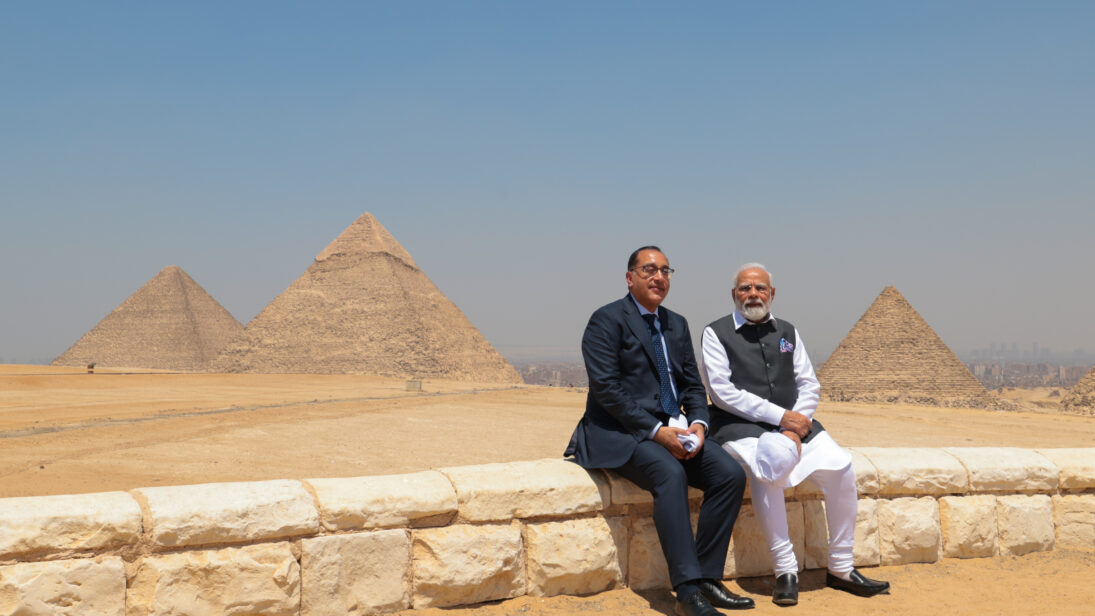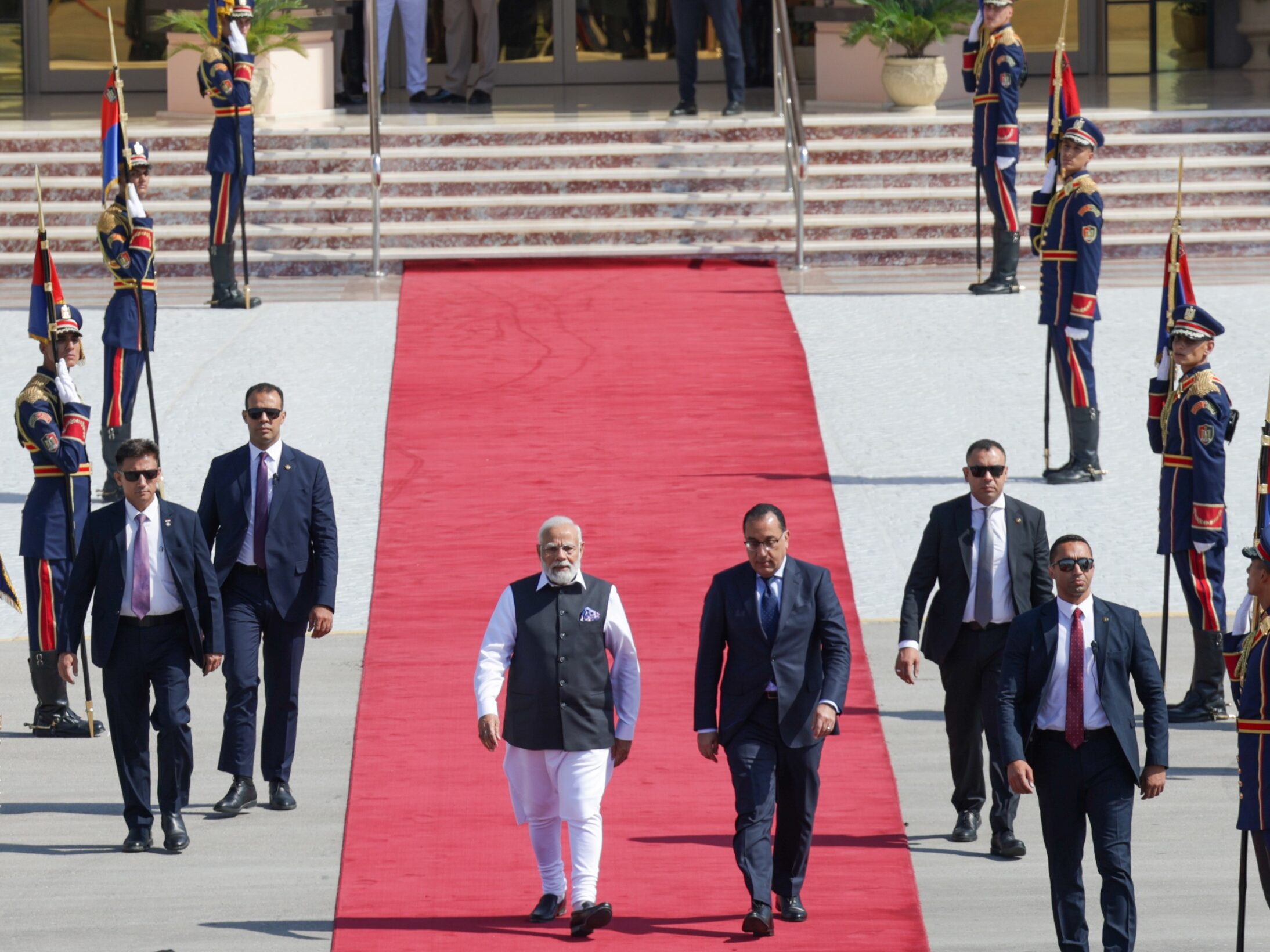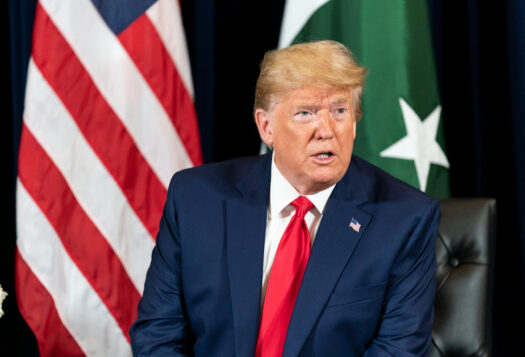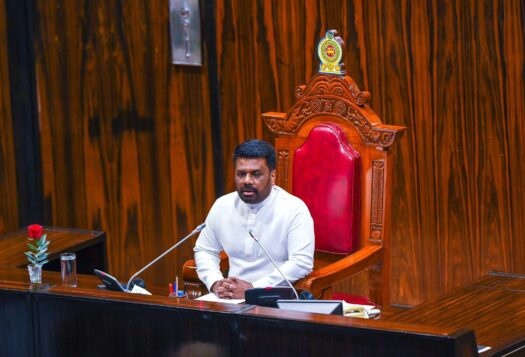
On his maiden visit to Egypt last month, Indian Prime Minister Narendra Modi met Egyptian President Abdel Fattah El-Sisi, marking the latest move in rapidly warming ties between the two countries. The visit, the first by an Indian Prime Minister in 26 years, witnessed an elevation in the relationship to a ‘strategic partnership,’ signalling a boost in cooperation between the two countries. This visit comes at a crucial time following President El-Sisi’s presence as the Chief Guest on India’s Republic Day earlier this year. Both diplomatic actions played a key role in revisiting and reigniting the crucial India-Egypt relationship in recent months.
Evolution of India-Egypt Ties
India and Egypt have a long history of close contact and friendly ties. In 1955, both signed the Friendship Treaty and the Non-Aligned Movement, which was established in 1961 along with former Yugoslavia, Indonesia, and Ghana. Their friendship was also tested during the Suez Canal crisis in 1956, when India supported Egypt as Britain and France tried to regain the Canal and overthrow the Nasser regime. Manifestations of several groupings of G77 and South‒South cooperation have also been instrumental in forging a united stance on global issues for both countries.
While India-Egypt ties are longstanding, the recent elevation of the relationship owes to current geopolitical and geostrategic shifts. For quite some time now, two specific shifts have led to rapid rapprochement. First, intensifying competition in the Asia-Pacific and the Middle East and North-Africa (MENA) regions has laid down the key role that India plays in the Indo-Pacific region. The strategic importance of the Suez Canal in Egypt will play an important role in the transit of naval vessels from the Mediterranean Sea into the Indo-Pacific theater. Strengthening these geopolitical and diplomatic ties with Egypt would also improve multilateral cooperation in the MENA region. Second, the outbreak of the Russia-Ukraine war has escalated food security challenges in Egypt, to which India has responded by increasing its supplies to Egypt and facilitated a larger flow of agricultural goods. Since, New Delhi and Cairo have sought out greater cooperation.
The strategic importance of the Suez Canal in Egypt will play an important role in the transit of naval vessels from the Mediterranean Sea into the Indo-Pacific theater.
Rapprochement in Recent Months
During their meeting, President El-Sisi and PM Modi highlighted several areas to strengthen engagement, including enhanced political and security cooperation, defense collaboration, increased trade and investment ties, and scientific and academic collaboration. In addition to the agreement on strategic partnership, the two countries signed pacts on agriculture sectors, archaeology and antiquities, and competition law. These agreements build on an earlier deal signed in January, 2023 covering partnerships in information technology, cybersecurity, and broadcasting.
Defense cooperation stands as a focal point in many of the recent deals. Strengthening military ties between the two countries would give a major push to the Indian defense manufacturing units and allow India to expand on its defense exports. Considering the geopolitical challenges surrounding Egypt in the MENA region, defense cooperation would also lay the groundwork for Egypt to foster its own defense industry. Strategic cooperation with Egypt would also enhance India’s global efforts towards greater cohesiveness to tackle transnational terrorism. Both the countries can jointly enhance their partnership through joint military exercises, technology transfer, and cooperate in sharing intelligence in counterterrorism, an area that remains of concern.

Additionally, India relies on safe and swift passage through the Suez Canal for commerce and defense. To assure the security of these sea-lanes, Egypt plays a crucial role for India in promising a key economic and geopolitically-aligned foothold in that region. This relationship holds great importance for India to increase its commercial ties with the MENA region.
Commercially, much has been cultivated in the last few years to establish significant potential between the two countries. Prime Minister Modi’s trip to Egypt played a significant role by establishing key bilateral trade ties and increasing investment. The COVID pandemic and the Russian invasion of Ukraine demonstrated the severe detrimental effects of supply chain disruptions on global food supply chains, leading India and Egypt to bolster resiliency through trade and enhanced production capacity. Egypt has also considered providing a special spot at the Suez Canal Economic Zone, thus enabling the establishment of a high industrial estate and increase in investments. Additionally, the Indian diaspora in Egypt contributes a diverse pool of professionals, which serves to advance the bilateral relationship.
What to Expect in the Year Ahead
As New Delhi and Cairo seek to strengthen their positions on the international stage, a convergence in interests in multilateralism groupings, specifically in the G20 and more broadly in the Global South, will play a key role in their shared efforts to address global challenges. Both countries are looking beyond their regional foreign policy outreach to prioritize the interests of developing nations in international forums to focus on addressing the problems of the Global South without getting mired in differences over the Russia-Ukraine crisis. India and Egypt should collaborate to strengthen South-South Cooperation and call for a rules-based global order. By collectively voicing Global South issues, the spirit of mutual cooperation between one another can open up partnership avenues for both the countries in fostering greater trade and development.
The reset in bilateral relations, driven by defense cooperation, enables India to strengthen its footprint in the Indian Ocean region, add to expanding connections with the Arab world, and expand its defense diplomacy. Simultaneously, this rekindling of ties gives Egypt the opportunity to diversify its involvement in the fields of trade, investments, and food security as well as defense procurement. Because it has sparked engagements in numerous areas, the resetting of India-Egypt relations is encouraging for both nations. To maximize the potential of their bilateral relations, India and Egypt must build on this momentum.
By collectively voicing Global South issues, the spirit of mutual cooperation between one another can open up partnership avenues for both the countries in fostering greater trade and development.
There are many possibilities for cooperation between these two diverse nations. India has the capacity to meet Egypt’s needs for a number of goods, including refined petroleum, wheat, automobiles, and pharmaceuticals and therefore the year ahead might witness increased trade and cooperation. Egypt also has big plans for developing its infrastructure, including plans to build a New Cairo, nuclear power plants, and a high-speed train system. India can help by contributing expertise, capital, and technology to these projects. By exploring innovative funding mechanisms and strategic partnerships, both countries can set a historic precedent for engagements and mutual cooperation with other nations in the region.
Also Read: Improving India-Turkey Relations
***
Image 1: PM Visits Giza Pyramids via Flickr
Image 2: PM Modi Visit to Egypt via Flickr


